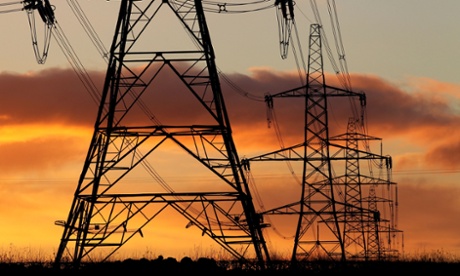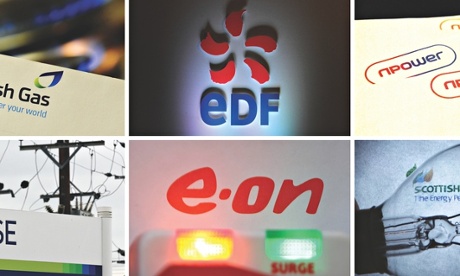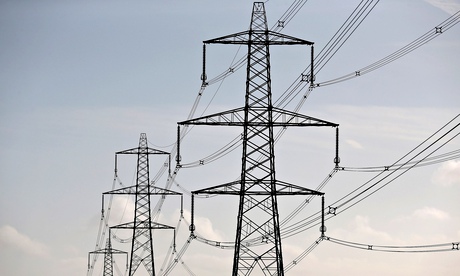EDF, one of the UK’s big six energy suppliers, could be in line for a £1bn windfall each year for three years from its existing coal and nuclear power stations under a controversial government-designed auction which starts on Tuesday.
The scheme has come under considerable criticism because the costs of the new subsidies will be met by consumers paying higher electricity bills, with an estimated extra charge of £14 a year. It has also been attacked by one of the industry’s most respected figures, while UK ministers face a legal challenge in the European courts.
EDF, which is largely owned by the French state, has prequalified eight nuclear and two coal plants for the “capacity market” under which payments will be made to companies to guarantee their help in keeping the UK’s lights on. A fifth of any windfall profit on the nuclear fleet would go to Centrica which holds a stake in this part of the EDF business.
Rivals SSE and E.ON are also in line for potential subsidies for their coal plants.
Tom Greatrex MP, the shadow energy minister, said: “Any policy which adds to energy bills needs to be subjected to the highest levels of scrutiny – consumers must know that they are getting value for money.
“The capacity market will levy a £14 charge on the bill of every consumer – every pound spent must deliver enhanced security of supply. Whilst the broad framework of the policy is right, [there are] flaws in the detail of its implementation [which] risk leaving consumers short-changed.”
Originally the scheme was expected to be used to encourage the building of new gas-fired plants only but was expanded to include existing coal and nuclear power stations, putting EDF in line for the windfall payments.
The price to be paid to the generators will only be known once the auction finishes next week but a maximum – set at £75 per kW hour by government – could secure EDF £3.3bn. The windfall relates to its existing coal plants at Cottam and West Burton in Nottinghamshire, and nuclear plants such as Dungeness B in Kent. the company could earn more if its gas-fired stations also win contracts.
Ministers are also offering firm contracts from 2018 of up to 15 years for anyone offering to build new gas power plants but three years for some existing plants such as the EDF stations and only one-year deals for those offering demand reduction under an auction run by the National Grid.
Jenny Banks, energy and climate specialist at WWF UK, the environment charity which provided the estimates, said: “When the government has been pushing for stronger climate action at the global talks in Lima, our big energy companies are preparing to bid for billions of bill payers’ money which will be handed to some of the UK’s dirtiest, most polluting power stations.
“Instead of propping up dirty and inefficient coal power stations, the government should be focusing on incentives to reduce energy demand and supporting the growth of modern technologies like ‘demand response’ which are far cleaner and could save millions on consumer bills.”
Demand response involves the changes in customer electric usage from their normal consumption patterns as a result of price changes.
A previous estimate by independent consultant Cornwall Energy predicted that EDF could earn windfall profits of £800m in total over five years from 2018, although that was based just on its nuclear and not coal plants.
Both the Department of Energy and Climate Change (DECC) nor EDF declined to comment on the basis that it was impossible to speculate on what the final price of the auction would be and whether all or none of the coal or nuclear plants would win out. However, industry sources pointed out that £400m a year was currently being invested in the nuclear fleet to keep it running.
Meanwhile, Volker Beckers, the former chief executive of RWE npower and an ongoing adviser to HMRC, predicted this particular subsidy system paid through customer bills would fail. “I think the capacity market is not necessary if the ministers’ main objective is to attract new investment. I don’t think it will,” he added.
Beckers, who has also just been made chairman of Reactive Technologies, a company which offers customers ways of reducing energy use, says demand reduction can be a better way of handling an energy crunch: “Demand side management is much cheaper than building new CCGI [Combine Cycle Gas Turbine plants] or even more expensive ones like nuclear.”
Reactive Industries says it supports the legal challenge being mounted by Tempus Energy, which is taking the UK government to the European general court alleging that the new capacity market system violates state aid rules.
Tempus claims that the DECC is unnecessarily locking in customers to a possible total of £2.5bn worth of annual costs by prioritising payments to power stations rather than demand reduction schemes.
A first auction under the capacity market will start on Tuesday 16 December and could run until Friday with 15-year contracts on offer for power station operators but only one-year deals for those offering demand reduction.
Proponents of demand-reduction schemes are particularly critical that the longer-term contracts would encourage the building of new capacity.
“The Capacity Market was originally set up to keep the lights on at the lowest possible cost; a format that has been used very successfully in the US. But an engrained, institutional bias in favour of building new assets to boost supply means that cost-effective ‘no build’ technologies for managing demand have been ignored,” said Sara Bell, chief executive of Tempus.
“This will push up electricity bills needlessly and commit consumers to paying for capacity that we would not need if we invested in building demand-flexibility, for those who want to use it,” she said.
A DECC spokesperson said the government had full confidence in the auction. “The European commission has concluded that the capacity market is within European state aid rules. This challenge will have no impact on the running of the capacity auction.”
• This article was amended on 15 December. £75 per MW hour should have been £75 per kW hour











